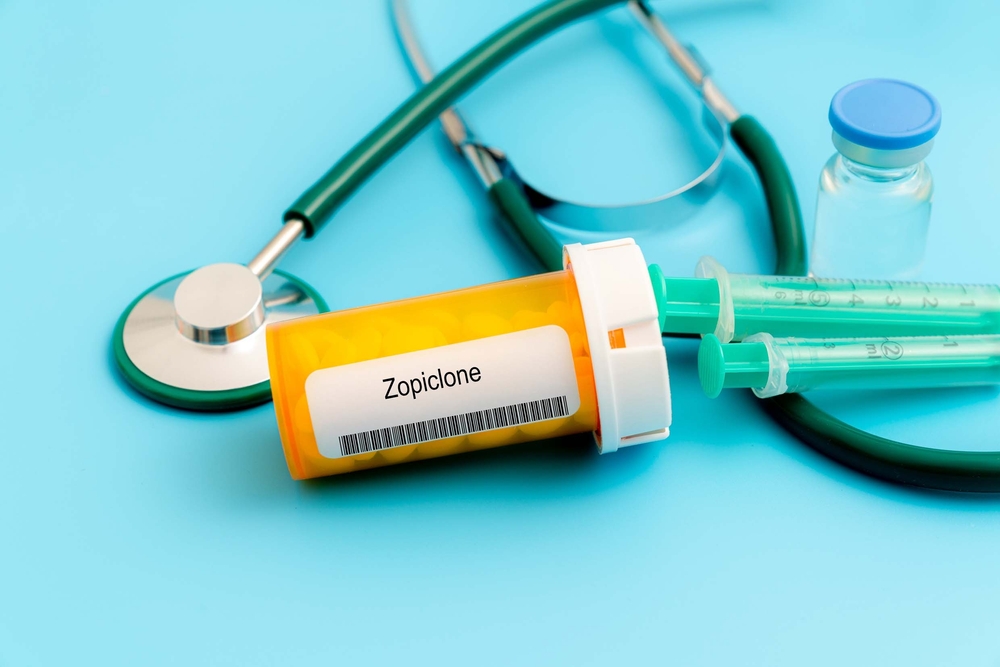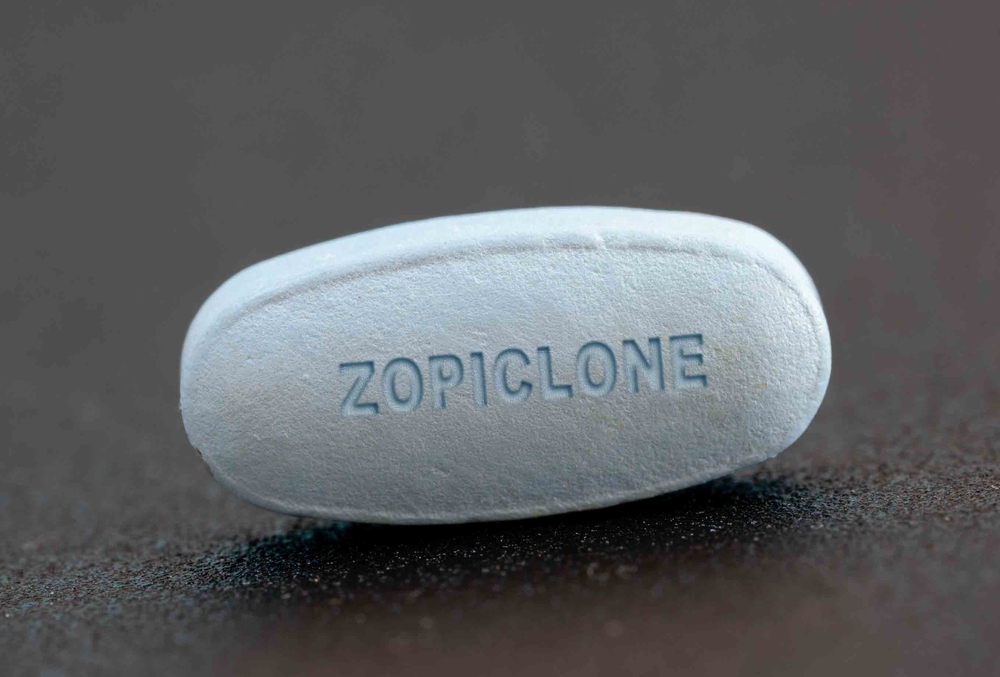Last Updated:
July 21st, 2025
Zopiclone Rehab Treatment | What to Expect
What is Zopiclone rehab?
Zopiclone rehab is a structured treatment plan designed to help you safely come off the drug and move toward a life where sleep doesn’t have to be forced. Prescribed as a short-term aid for insomnia, Zopiclone is a sedative that can be incredibly effective, but that effectiveness can quickly lead to reliance, even when taken exactly as instructed.
You might not notice the shift at first and maybe you only meant to take it for a few nights but after a while, the idea of sleeping without it feels impossible. Zopiclone becomes less of a support and more of a crutch.
Zopiclone rehab is about finding your footing again. With professional detox, therapeutic guidance and support that continues beyond discharge, Zopiclone rehab gives you a safe environment to recover and a clear plan to move forward.

Do I need treatment for Zopiclone addiction?
When a drug is prescribed, it can be difficult to recognise when things have gone too far. You may be functioning day-to-day, holding down responsibilities, even sleeping ‘well ’, but still feel uneasy at the thought of missing a dose. That unease can be a sign that dependence has formed.
Here are a few other indicators that treatment could help:
- You feel anxious or restless without taking Zopiclone
- You’ve increased your dose without medical guidance
- You’ve tried to stop but couldn’t manage the symptoms
- You’re starting to feel foggy or detached in the daytime
- You worry about how you’ll sleep without it
These may seem like small signals, but they often point to deeper issues, ones that are very hard to uncover on your own.
What does Zopiclone rehab involve?
Zopiclone rehab gives you a space where your recovery is the main focus. No two care plans are exactly alike but most treatment paths follow the same key stages: assessment, detox, therapy and aftercare planning.
Below, we take a closer look at these stages, with the aim of demystifying a process that is often covered in misconceptions.
Assessment
Your recovery begins with a thorough assessment of your physical and mental health. Often, when it comes to addiction, other mental health issues could be present. This is known as a co-occurring disorder and sometimes can go unnoticed for many years. Once everything has been assessed, a personalised care plan is developed that supports you properly from day one.
Detox
Detox is the process of helping your body adjust to life without Zopiclone. This stage can bring uncomfortable withdrawal symptoms, particularly if you’ve been taking the drug for a long time or at higher doses.
Common Zopiclone withdrawal symptoms include:
- Anxiety and restlessness
- Insomnia or fragmented sleep
- Muscle tension and tremors
- Mood swings and irritability
- Confusion or disorientation
These symptoms can feel overwhelming when you’re on your own, which is why detox in rehab is done gradually with support from trained professionals. Your dose is carefully tapered, meaning the Zopiclone is reduced gradually each day. This slow approach is essential, as quitting suddenly can be extremely difficult.Withdrawal symptoms are eased, and your chances of a successful recovery are much higher.
Therapy
As your body stabilises, therapy begins. This is where you’ll explore the deeper reasons behind your Zopiclone use, regardless of whether you started as prescribed or not.
You’ll have access to:
- One-to-one counselling gives you space to explore what led you to rely on Zopiclone in the first place. Many people find it becomes a way to escape stress, silence overthinking or get through emotionally turbulent nights. These sessions help you untangle that connection and find safer, more sustainable ways to cope.
- Group therapy helps break the sense of isolation that often comes with sleep issues and dependency. You’ll hear from others who’ve also struggled with Zopiclone, which can normalise your experience and open up new ways of thinking about your own recovery.
- CBT and DBT are especially useful for addressing the thought patterns that make sleep feel so unreachable without medication. These therapies challenge beliefs like “I’ll never sleep without a pill” and give you tools to manage the anxiety and racing thoughts that often lie underneath the dependency.
- Holistic therapies like yoga, meditation and art reconnect your body and mind in ways that Zopiclone may have numbed. These activities help restore your natural sleep rhythm and give your nervous system the chance to unwind without chemical interference.
Therapy helps you build tools that last long after rehab ends, tools that don’t involve reaching for a pill. It’s certainly a quieter kind of recovery but it reaches the places the pills never could.
Aftercare and support beyond rehab
Leaving rehab doesn’t mean you’re left to figure things out alone. Recovery is an ongoing process, especially when the pressures of daily life return. That’s why your care plan will include aftercare, a support programme to help you stay grounded and supported as you adjust to life without Zopiclone.
This might include:
- Weekly support group sessions offer connection and shared understanding, reminding you that you’re not alone in your recovery.
- Continued counselling or check-ins help you work through any underlying issues and keep you on track emotionally and mentally.
- Relapse prevention planning teaches you how to spot early warning signs, manage cravings and build healthy coping mechanisms.
- Access to community networks provides practical and emotional support, making it easier to maintain structure and purpose in daily life.
The aim is to keep you connected to your recovery, even when you’re no longer in the rehab environment.
There’s a difference between ‘passing out’ and ‘drifting off’
It might look like sleep from the outside but you can feel the difference. One moment you’re wide awake, the next it’s a blackout, and not the kind that leaves you feeling rested. Your eyes open in the morning but your mind is still foggy, your body stiff and whatever brief escape you had feels more like shutting down than switching off.
That’s what happens when sleep is forced. When it stops being something your body eases into and becomes something it only knows through Zopiclone. You stop trusting your own rhythms. You start to feel like rest is something you have to chase, night after night and even then, it never quite delivers.
Inpatient rehab gives your body the space to reset. It doesn’t rush the process or expect perfection; rather, it removes the noise and gives you a stable routine. This then allows you to form a water-tight recovery foundation to begin digging into the reasons for your Zopiclone addiction.
With time, you’ll begin to fall asleep again in a way that doesn’t feel artificial or short-lived.

Reach out to us
If Zopiclone has become something you feel you can’t sleep without, you’re not alone. Many reach a point where the drug no longer helps, yet stopping feels impossible. That’s where rehab comes in.
At Addiction Helper, we’ll talk you through your options, listen without judgement and help you take the next step. Whether you’re ready to start treatment or just need to explore what that might look like, reach out to us today. The help you need is closer than you think.
Our compassionate team are ready and available to take your call, and guide you towards lasting the lasting addiction recovery you deserve.

